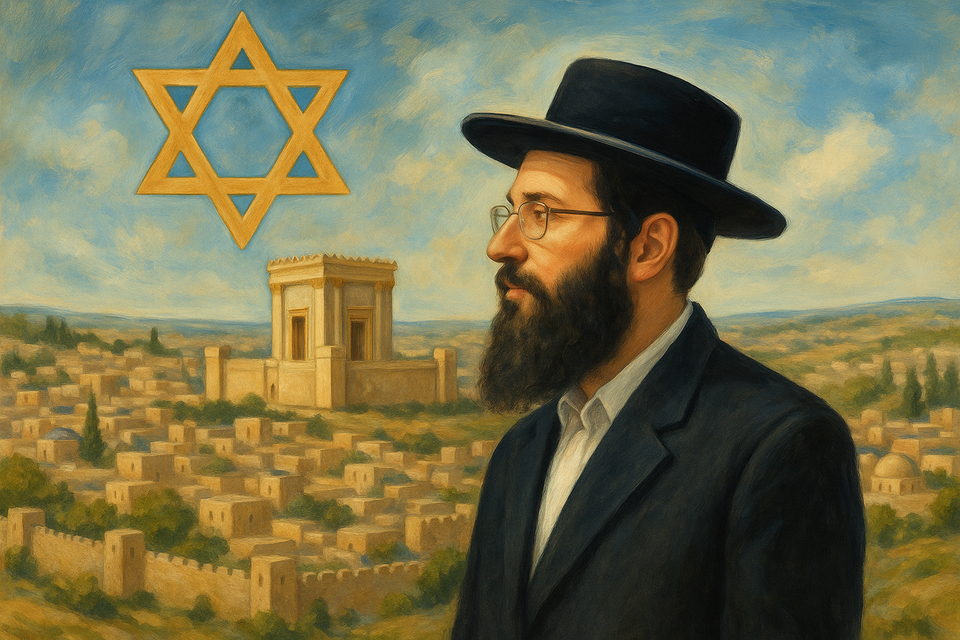Do Charedim support a halachic state? What would that look like?

This is a question that touches on the heart of the Charedi worldview: What is the ideal society according to the Torah?
To answer it clearly: Charedim do not support a “Halachic State” in the modern political sense. We support a society that follows Halacha. There’s a profound difference between the two.
What’s the Difference Between a “Halachic State” and a Torah Society?
The term “halachic state” is a modern concept. It usually refers to a government that enforces Jewish law through political structures and legal mechanisms—often modeled on Western-style nationalism or theocratic models from other cultures.
But the Torah was never intended to be implemented as a modern political state. It is a Divine system of life, built on the foundations of emunah, midos tovos, and kabbalas ol Malchus Shamayim—not just legal compliance. A society that truly follows Halacha must be built from within, on yiras Shamayim, not from the top-down by force.
As the Chazon Ish famously wrote:
"The Torah does not force. It teaches. It guides. And it inspires." (Igros Chazon Ish, Vol. I, Letter 3)
Gedolim Reject the Idea of a Modern “Halachic State”
Many Gedolim were explicit in their rejection of a halachic state imposed through secular or nationalistic means:
- Rav Elazar Menachem Man Shach zt”l warned that mixing Torah with state power is dangerous: "Torah must remain pure. When you turn it into a political tool, it loses its light." (Michtavim U’Maamarim, Vol. 3, p. 110)
- Rav Yosef Shalom Elyashiv zt”l was also clear: "We are not interested in forcing people to be religious. We are interested in raising people who choose to be." (Private meeting, as quoted in Pe’er HaDor)
In other words, we don’t want Halacha to be imposed through courts and police—we want a society where Halacha is lived because it is loved.
The Torah’s Vision Is Not About Control—It’s About Connection
The Torah's vision for Am Yisrael is not a “state.” It is a Kehillah Kedoshah—a holy nation where:
- Torah is learned for its own sake,
- Mitzvos are kept out of awe and love for Hashem,
- Leaders are Torah sages, not politicians,
- Justice is dispensed by dayanim who tremble before Hashem,
- Kindness and tznius are the social fabric—not slogans or legal codes.
When Moshiach comes, the Sanhedrin will be restored, prophecy will return, and the Torah will again be our national constitution. But it will be done through Hashem's intervention, not through elections or government offices.
Until then, any attempt to create a “halachic state” without true yiras Shamayim risks desecrating that which is holy.
What Do Charedim Support? A Torah Society, Not a Political One
Charedim dream of a society where:
- The rhythm of life is set by the Jewish calendar, not by work deadlines.
- Schools teach Emunah and Chumash with the same seriousness as they teach language or math.
- Judges are Talmidei Chachamim, not just legal scholars.
- Tznius, chessed, and shemiras halashon are the norm—not enforced by law, but by culture and upbringing.
This is not a “halachic state”. This is a society of Torah.
In Summary
No, Charedim do not support a modern “halachic state” governed by politicians or enforced by law. We support building a society—slowly, person by person, community by community—that chooses to live according to Halacha because it is truth, not because it is legislated.
The Torah is not a political ideology. It is Toras Chaim—a living path for the soul of the Jewish people. And that is what we want to restore.
Sources & Footnotes
- Igros Chazon Ish, Vol. I, Letter 3 – “Torah does not force…”
- Michtavim U’Maamarim, Rav Shach, Vol. 3 – On not politicizing Torah.
- Pe’er HaDor – Rav Elyashiv on not forcing religion.
- Devarim 4:6 – “For it is your wisdom and understanding in the eyes of the nations…”
- Rambam, Hilchos Melachim, ch. 11 – The role of Moshiach in restoring Torah governance.
